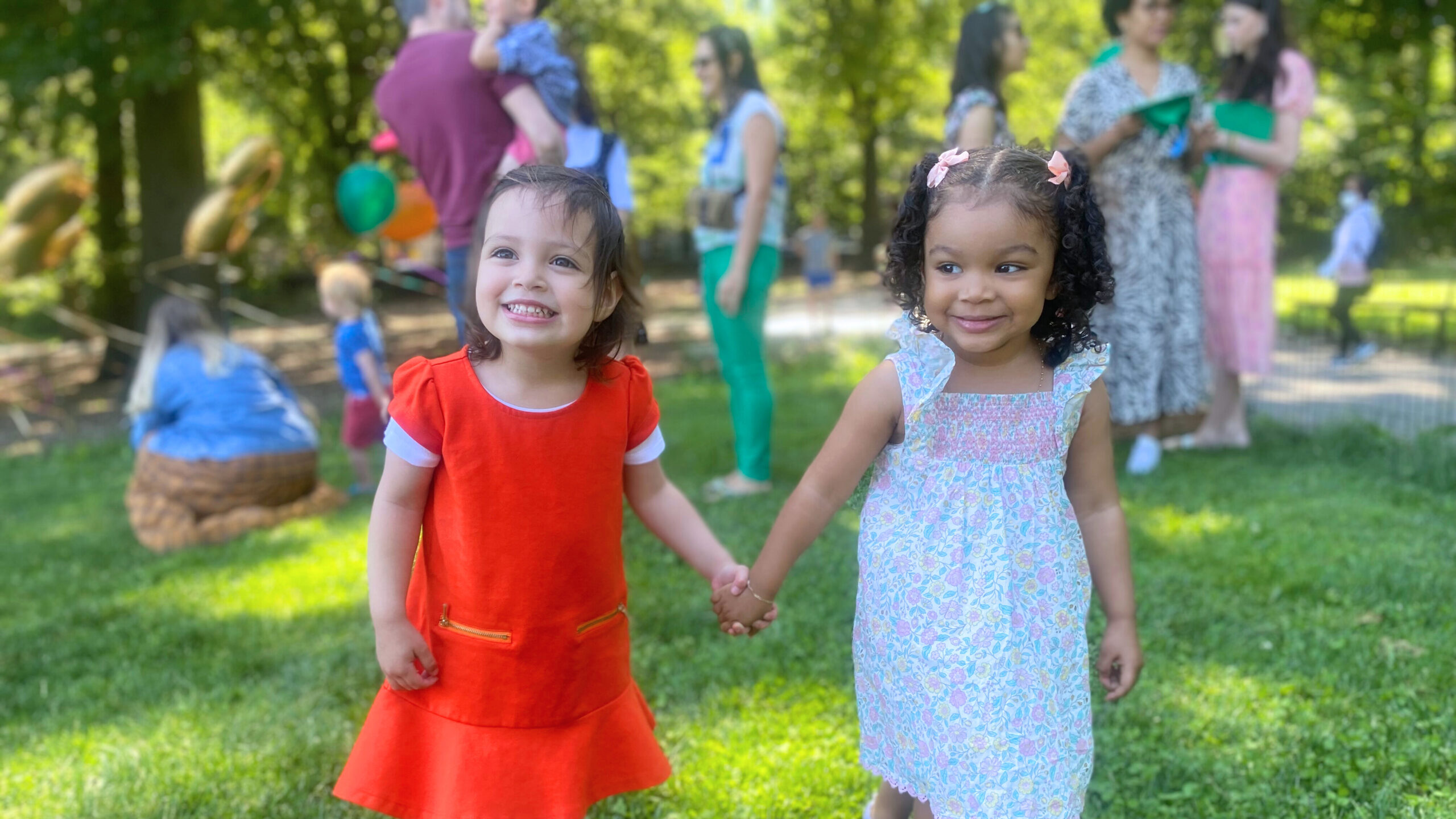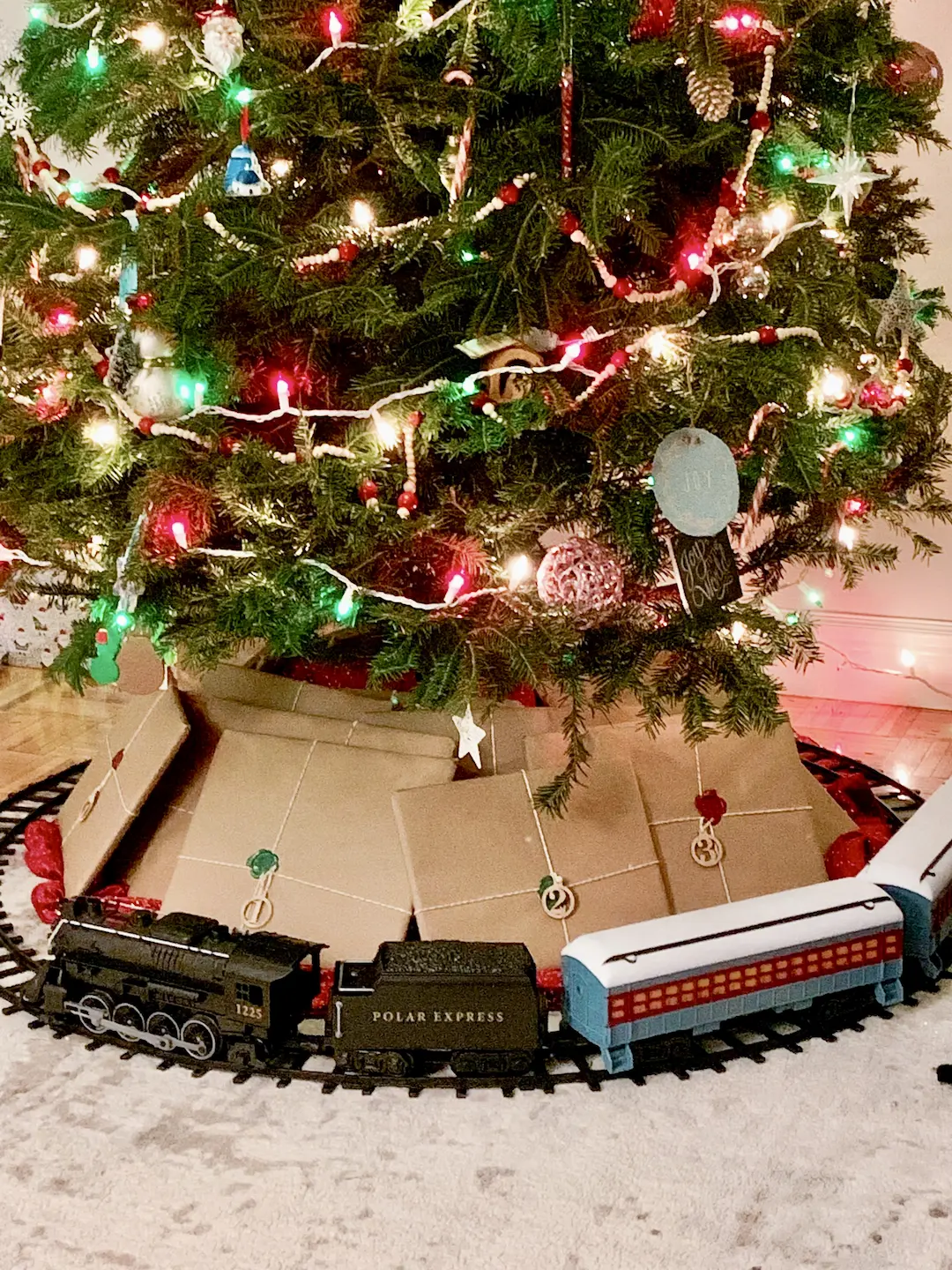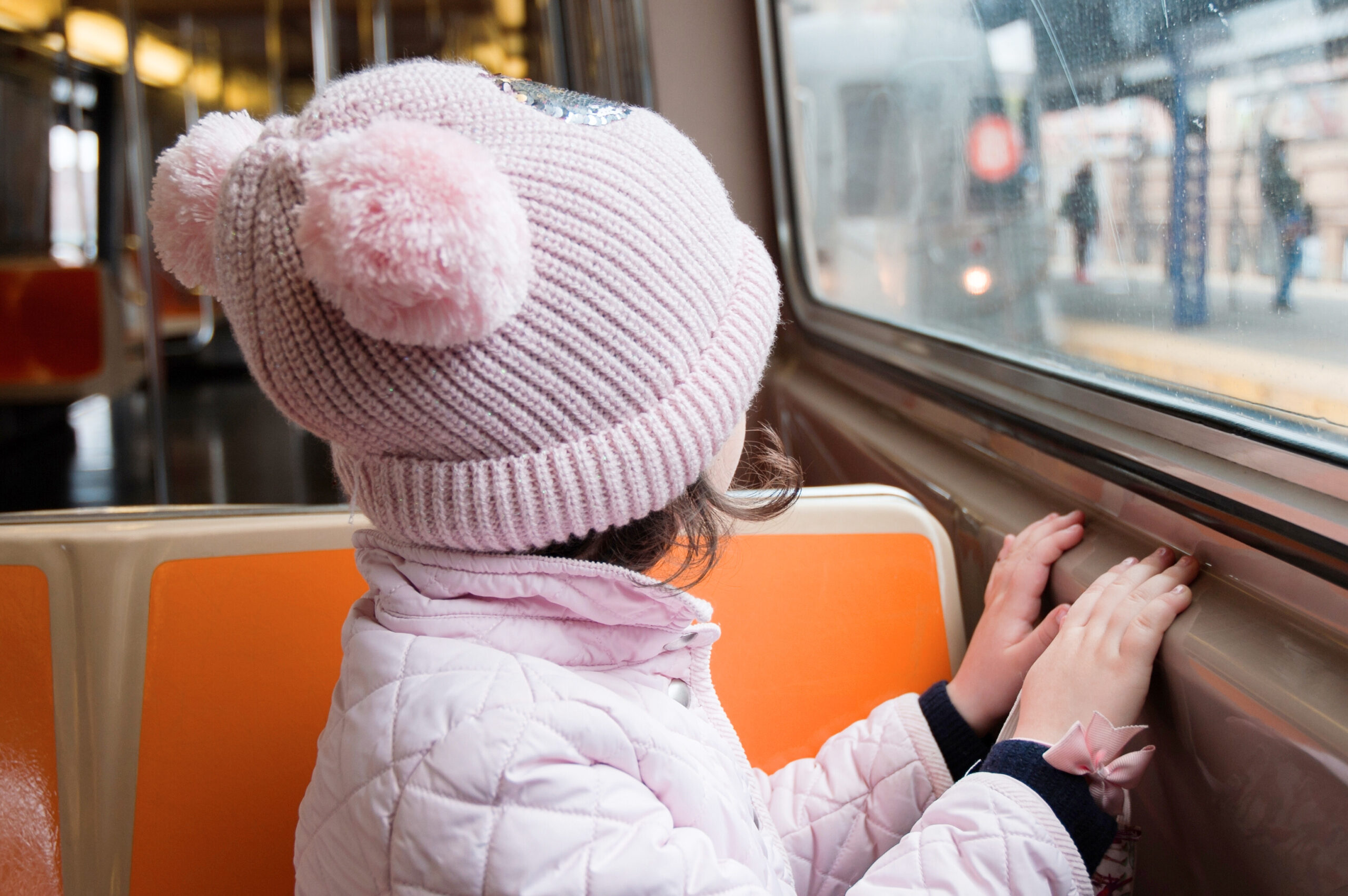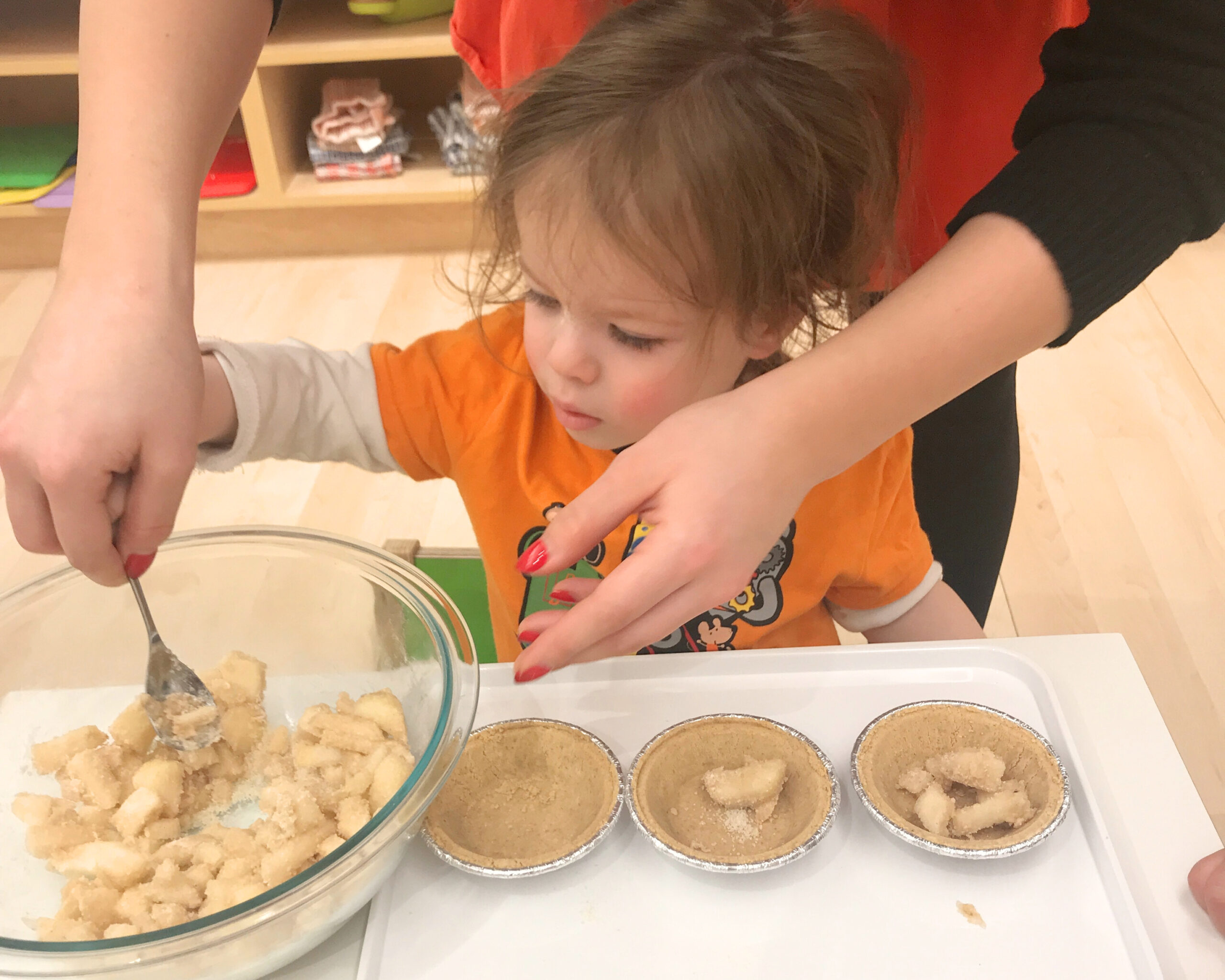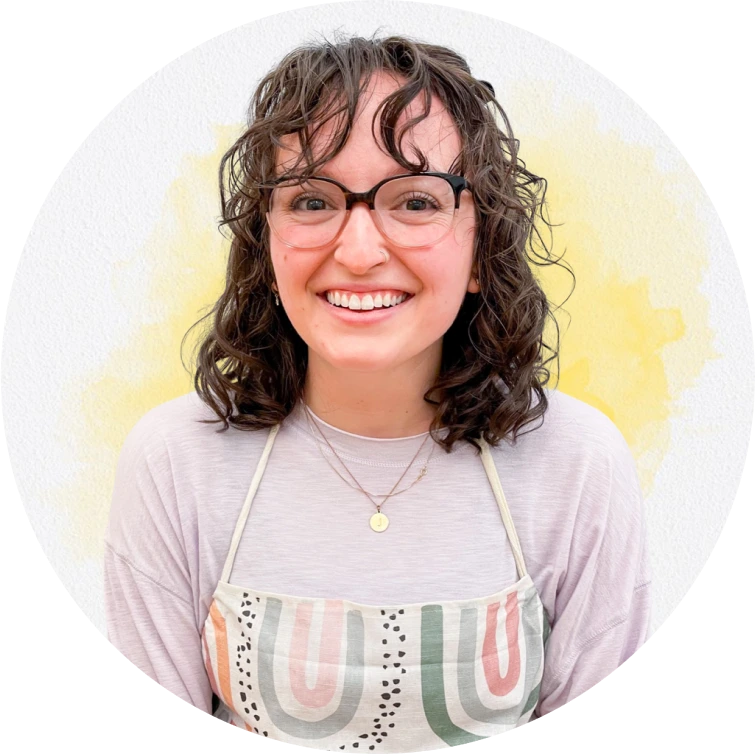When your little one starts playing with other children at their NYC preschool, on the playground, or at one of the numerous activities in their busy schedule, they are bound to start creating their first friendships. What a special time! Is there a name that keeps coming up when your little one tells you about their day? Or is there one child you have seen your little one consistently play well with? A great way to nurture these early friendships is with playdates! Our little ones are still learning how to play with others and make friends, and playdates are great for their social-emotional development.
So how does one go about planning a playdate? A great way to start is by introducing yourself to the new friend’s parent or caregiver. Learn a little bit about each other and if everyone is comfortable, talk to your little one about inviting that friend over for a playdate. Your little one could get very excited by this idea, or they might get a little hesitant; checking in with them about it when you are away from your NYC preschool or other social setting is a great way to make it a private conversation and let them know what to expect, because at this point in their social emotional development, they may have never had a playdate before!
Once everyone is on board, it’s time to plan the playdate! Here are some tips to get you started:
Location: Host the playdate at your home or somewhere your little one and their friend can feel safe and comfortable to play together. At home, your little one can practice sharing their toys and space in a way they may not have had to at their NYC preschool. Another benefit of a playdate at home includes having a bathroom, especially for friends still potty-training.
Activities: Plan a couple activities they can do together, especially if there’s a game they already know they both love to play from NYC preschool. Having these plans can also help if they start to lose steam or need to change activities. If the weather permits and you have an outdoor space, plan some time outside. Also, it’s an exciting time for your little one to have a friend over for the first time, they will probably want to show their friend a tour of their room and toys.
Snack Time: Check with the friend’s family for any food allergies and plan a snack time during the playdate. This will come in handy, especially if anyone starts to get fussy or tired; a healthy and fun snack with a friend can bring the energy back up!
Set Boundaries: Are there any activities your little one has trouble sharing? If so, the first playdate probably isn’t the time to practice sharing that activity – maybe save it for next time! Will any electronics be available for play, or do they need to be put away while the friend is over? Of course you have the final say, but talk to your little one about it so they know what to expect.
Eyes on Playtime: Let the little ones know that if they need anything or if any problems come up, you are there. If this is your little one’s first playdate, they may get shy. It’s a little strange having people who are not their family in their home. Help them get started with an activity and once they have settled in, excuse yourself and find an activity for yourself. If your little one is reluctant to have you leave, stick around for a bit and then slowly try to peel yourself away. Keeping an eye (or an ear) out for them ensures they play safely as well, but letting them try to figure things out on their own at first is great for their social emotional development.
Problems During Playtime: If a disagreement between friends occurs, actively listen to see if they can resolve it on their own. Working out conflicts is important for their social emotional development. You can step in if you hear or see it escalate, or observe them playing too rough. See if you can find a solution with them, and if things have gotten physical, talk through what to do when big feelings come up. Even the best of friends need breaks from each other – they may need some independent play time.
Parallel Play: If you notice the little ones doing their own things and not playing together, all is well! It’s common at this age for little ones to play together, without playing “together”. This is called parallel play — engaging in their own activities alongside one another. We see it all the time at our NYC preschool, and it is completely healthy!
Time to Clean Up: When there is about half an hour left of the playdate, let the little ones know they can expect to start cleaning up soon. With 15 minutes left, encourage them to start putting away the activities they have gotten out. If you have any cleanup games that help your little one get going, introduce those to your little one’s friend. Put on some music or a clean up song to encourage them. If they need a bit of help, join in, but do not clean up alone.
Playdates are where new friends from NYC preschool or other bigger social settings get to spend one-on-one time playing, chatting, and learning about each other. I remember when I was a little one, I met my best friend on the first day of preschool and we stayed that way through high school. We grew up and went different directions, but we still send each other love when we pop up on social media. The friendships made as little ones could last a week or a lifetime, and playdates are a great way to create the space away from their NYC preschool for those friendships to grow and their social emotional development to blossom!
